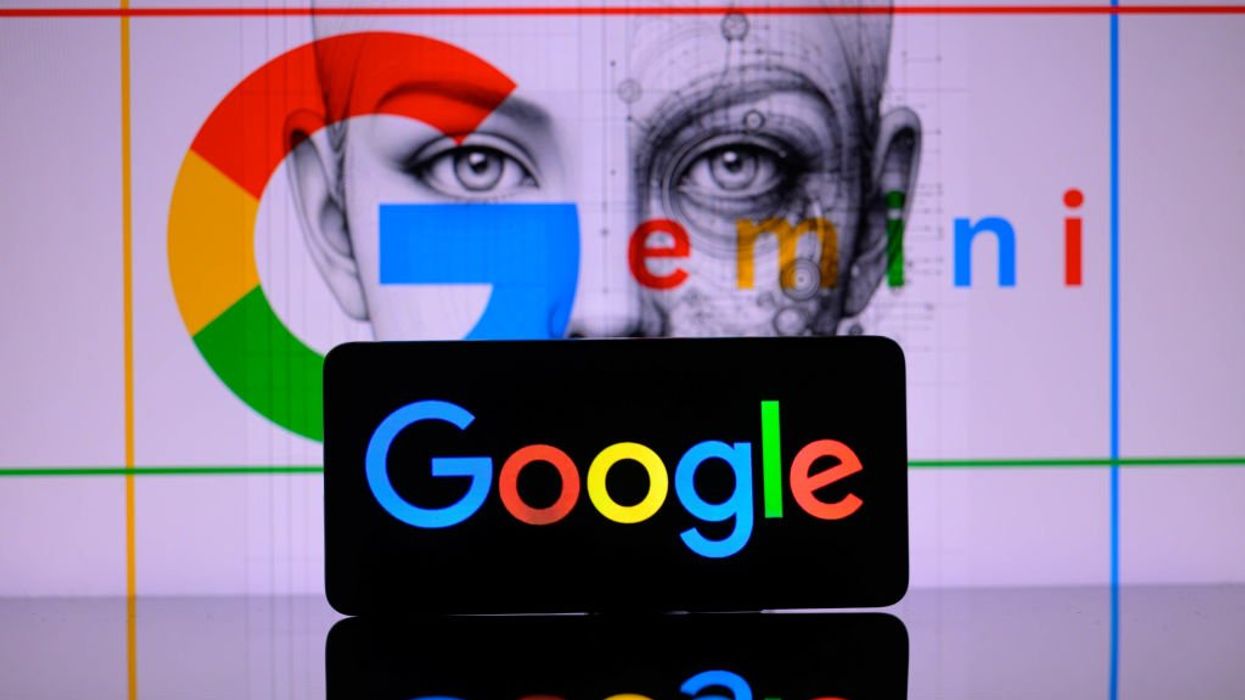
NurPhoto/Getty

Apple and Google have long held differing views on user data and device privacy. While Apple promises to keep most personal info on-device and encrypted, Google is known for mining user data and leveraging it to serve ads, improve products, and more. However, a new partnership between these two tech giants could allow Google’s AI platform, Gemini, to access user data like never before.
Earlier this year, rumors swirled that Apple was working on a new AI-powered version of Siri for iOS 18. The update would make Apple’s personal assistant comparable to generative AI platforms like ChatGPT and Google Gemini, allowing it to provide better query responses, edit written content, and possibly even create text and images of its own. While this project may still be in development, new details claim that Apple hopes to kickstart its AI ambitions by striking a deal directly with one of its competitors.
Google Gemini is now poised to take center stage at Apple’s WWDC event this spring, where iOS 18 is expected to be unveiled. Debuting in December 2023, the platform is relatively young compared to OpenAI’s ChatGPT, which launched to the public in November 2022. However, Google has been quick to iterate on the platform as it aims to replace its antiquated Google Assistant soon.
This isn’t the first time Apple has let Google into the iPhone. For instance, when the iPhone debuted in 2007, Google Maps was the default navigation app that came pre-installed on every device. This would remain the status quo for iPhone users until Apple Maps swooped in as a homegrown replacement in 2012.
YouTube was also famously built directly into the iPhone until meeting its untimely ousting for reasons unknown in the same year. Google took the gesture in stride by launching its third-party YouTube app on the App Store today.
Despite Google missing out on some direct integration with the iPhone, the search giant reportedly pays Apple $18 billion per year to be the default search engine in Apple’s Safari web browser across all Apple devices, including iPhone, iPad, and Mac.
The two tech giants have a history of working together, significantly when both businesses can mutually benefit from one another and Apple’s rich user base. In the case of Gemini, Apple gets to boast new AI features on the iPhone that weren’t possible before. Google gets instant access to a larger pool of users, which could help it supplant ChatGPT as the leading generative AI solution on the block.
While it’s a mystery how Gemini will be integrated directly into iOS 18, it’s possible to interact with Gemini today through your web browser. Simply go to the official Google Gemini website and sign in with a Google account. Before you do anything else, note the disclaimer at the bottom of the page:
“Your conversations are processed by human reviewers to improve the technologies powering Gemini Apps. Don’t enter anything you wouldn’t want reviewed or used.”
Keep in mind that live Google employees will review anything and everything you type into the prompt bar. Why? Because Gemini is still in the early stages of development, and Google’s employees are continuously monitoring the platform and making changes as issues arise, like with the diversity image scandal in February.
But even once Gemini has surpassed the need for human reviewers, you should still know that every request typed into the prompt bar is sent to Google’s servers to be processed before all responses can be sent back to your device. This means that Google will still technically have a record of every request you make and every response it creates on your behalf for up to three years, according to Google’s privacy policy.
So, be careful what you say to Gemini, especially if you value your privacy.
Herein lies the tricky part of this collaboration between Apple and Google. How does the former, which prides itself on user privacy and keeping as much data on-device as possible, work with the latter that regularly collects and processes user data through its servers in the cloud?
It’s hard to believe Apple would be willing to compromise its privacy-focused values just to add generative AI capabilities to its devices, and it might not have to. Google makes a version of Gemini called Gemini Nano that’s small enough to run directly on-device without sending user data to Google’s servers. This module is currently reserved only for Google’s Android-powered Pixel 8 Pro and Samsung’s S24 series, but any device that supports Android’s AICore system could technically run Gemini Nano.
Then again, the only way to get the most advanced features Gemini offers is through leveraging Google’s much larger and far more powerful AI models located in its cloud-based servers. Whether or not this extra power is worth the potential privacy trade-offs is up to Apple. However, if the company is willing to expose users to Google’s data-tracking efforts through Safari, giving up data to Gemini isn’t much of a stretch.
Regardless of how Google Gemini comes to iOS 18 and Apple’s family of devices later this year, one thing is clear: Generative AI is everywhere, and soon, all of your devices will have a version of it, whether you want it or not.
To stay on the safe side, never tell an AI bot what you wouldn’t tell your mother, and even then, some words are best said strictly between the humans in your life.
Thomas Young